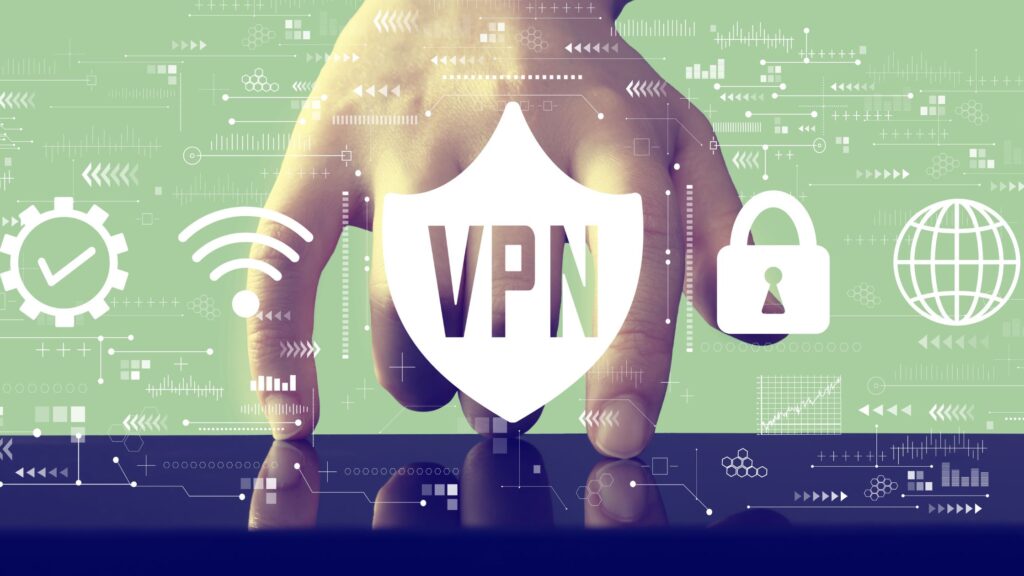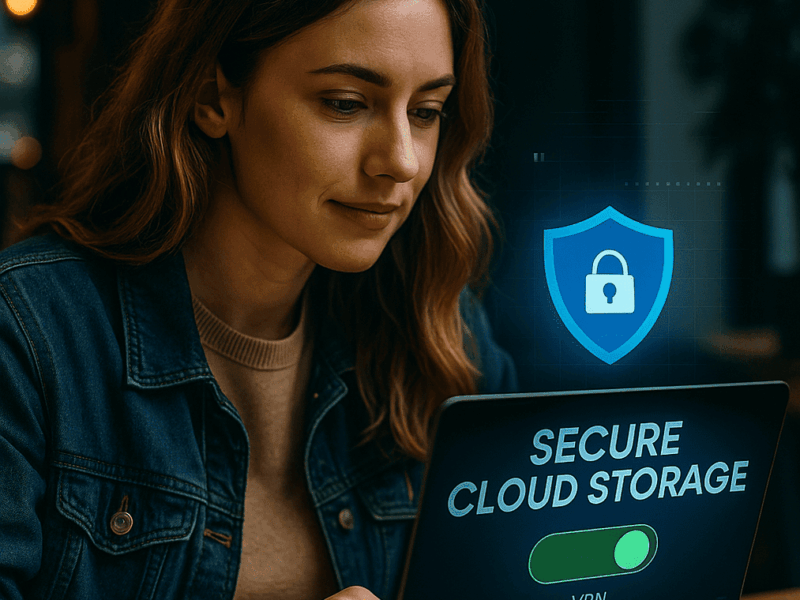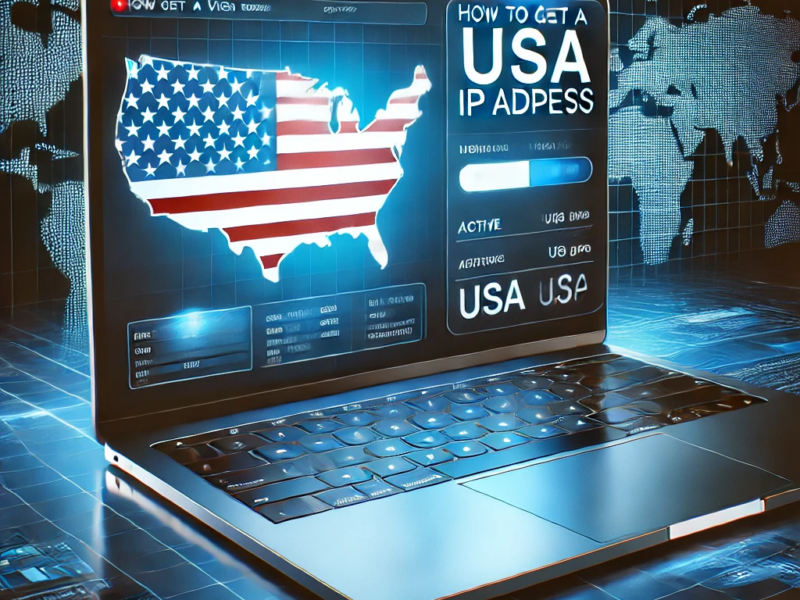In today’s digital age, protecting your online activities is of utmost importance. Imagine yourself walking through a crowded street, surrounded by people who are trying to steal your personal information. This is the reality we face in the digital world.
Fortunately, there is a solution to keep you safe – a Virtual Private Network (VPN). A VPN acts as a shield, providing you with online privacy and security. It allows you to browse the internet freely, without worrying about hackers, cybercriminals, or government surveillance.
With a VPN, you can say goodbye to internet censorship and the risks of using insecure Wi-Fi networks. It ensures that your identity remains hidden and your digital freedom is protected. A VPN is your guardian against the unseen threats that lurk online.
1. Hackers and Cybercriminals
Protecting yourself from hackers and cybercriminals is crucial in today’s digital landscape. One effective way to safeguard your online activities is by using a VPN. A VPN encrypts your internet connection and hides your IP address, providing you with a secure and private browsing experience.
With a VPN, you can browse the web without worry, knowing that your personal information and online activities are shielded from prying eyes. Cybercriminals are constantly looking for vulnerabilities to exploit and steal sensitive data. However, when you connect to the internet through a VPN, all your data becomes encrypted, making it nearly impossible for hackers to intercept and decipher.
Additionally, a VPN hides your IP address, making it difficult for cybercriminals to track and trace your online activities. Even if they manage to breach your network, they won’t be able to identify you or gain access to your personal information. This added layer of protection safeguards you from various cyber threats, including identity theft, financial fraud, and data breaches.
Investing in a VPN is a smart move to maintain your freedom online and protect yourself from hackers and cybercriminals. Don’t let them compromise your privacy and security. Stay safe in the digital world by utilizing the power of a VPN. As the saying goes, “Prevention is better than cure.”

2. Government Surveillance
Protect your online privacy and security from government surveillance by using a VPN. In today’s digital age, governments worldwide are increasingly monitoring online activities, that infringe upon personal freedoms and invade privacy. A Virtual Private Network (VPN) is a crucial tool that can help safeguard your freedom in the online realm and protect you against intrusive surveillance.
A VPN works by encrypting your internet traffic and routing it through a secure server in another country. This process ensures that your online activities remain anonymous, making it nearly impossible for government agencies to track your browsing history, monitor your online communications, or collect your data without your knowledge or consent. By masking your IP address and replacing it with that of the VPN server, you can effectively evade government surveillance and safeguard your online identity.
In addition to protecting against government surveillance, a VPN also prevents your internet service provider (ISP) from sharing your browsing habits or selling your data to governmental authorities. This added layer of protection ensures that your online activities remain private and beyond the reach of prying eyes. With a VPN, you regain control over your online presence and can exercise your right to free expression without fear of government interference or censorship.
3. Online Identity Theft
Protect your personal information and prevent unauthorized access by using a VPN. In today’s digital age, safeguarding your online identity is crucial. With cybercriminals becoming more advanced, it’s essential to take proactive steps to secure your sensitive data. A VPN, or Virtual Private Network, establishes a secure and encrypted connection between your device and the internet, making it extremely difficult for hackers to intercept your personal information.
Using a VPN offers several benefits in protecting against online identity theft. First, it encrypts your data, rendering it unreadable to anyone attempting to intercept it. This prevents hackers from stealing your personal information by encrypting your online activities. Additionally, a VPN provides anonymity by hiding your real IP address, making it challenging for cybercriminals to track your online actions. By masking your IP address, a VPN protects your identity and makes it harder for hackers to trace your online presence.
Furthermore, a VPN enhances your Wi-Fi security, especially when using public networks that are often vulnerable to cyberattacks. It safeguards your connection, ensuring that your personal information remains safe from prying eyes. Lastly, a VPN prevents unauthorized access to your personal information, such as credit card details and login credentials. By safeguarding your sensitive data, it prevents cybercriminals from stealing your identity and using it for malicious purposes.
4. Internet Censorship
Ensure your access to unrestricted information and bypass censorship measures by using a VPN. Internet censorship poses a threat to your freedom of expression and the ability to explore diverse viewpoints. Here are three reasons why using a VPN is crucial in combating internet censorship:
- Anonymity: A VPN encrypts your online activities and masks your IP address, making it difficult for governments, ISPs, or any other third parties to track your browsing history or location. This safeguards you from being targeted or censored based on your online activities.
- Access to Blocked Websites: Numerous countries impose restrictions on certain websites and social media platforms. By using a VPN, you can overcome these restrictions and gain access to blocked content. Whether it’s news websites, social media platforms, or streaming services, a VPN allows you to freely browse the internet without limitations.
- Safe Communication: In some countries, communication apps and services are heavily monitored or completely blocked. By utilizing a VPN, you can securely communicate with others without the fear of censorship or surveillance. This is especially important for activists, journalists, or individuals who need to protect their privacy and maintain their freedom of speech.
In a world where knowledge is power, using a VPN is a vital tool in preserving your rights and ensuring unrestricted access to the internet. Don’t let censorship impede your quest for knowledge and freedom.
5. Insecure Wi-Fi Networks
Insecure Wi-Fi networks, often found in places like coffee shops, airports, or hotels, can expose you to potential risks. Hackers can easily intercept your data, including personal information, passwords, and financial details.
However, there’s a solution to protect yourself: a VPN.
A VPN, or Virtual Private Network, creates a secure and encrypted connection between your device and the internet. This means that when you use a VPN while connected to a public Wi-Fi network, your online activities become virtually impossible for anyone to eavesdrop on. It acts as a shield, preventing hackers from accessing your data.
Let’s take a closer look at the dangers of insecure Wi-Fi networks and how a VPN can provide protection:
- Data interception and theft: Hackers can intercept your data on insecure networks, but with a VPN, your data is encrypted, making it unreadable to unauthorized individuals.
- Malware and phishing attacks: A VPN establishes a secure tunnel that blocks malicious activities, ensuring that your device remains protected from malware and phishing attempts.
- Man-in-the-middle attacks: By using a VPN, your connection is direct and protected, reducing the risk of falling victim to man-in-the-middle attacks.
- Identity theft: With a VPN, your IP address is masked, making it difficult for anyone to track your online activities and steal your identity.
- Unauthorized access to devices: A VPN guards your information by creating a secure connection, preventing unauthorized individuals from accessing your devices.
A VPN gives you the freedom to connect to any Wi-Fi network, even the most insecure ones, without compromising your privacy and security.
In a world where our personal information is constantly at risk, using a VPN is a simple yet effective way to safeguard our online security.

Frequently Asked Questions
Can a VPN Completely Eliminate the Risk of Hackers and Cybercriminals Accessing My Personal Information?
Yes, a VPN can effectively eliminate the risk of hackers and cybercriminals accessing your personal information. It achieves this by creating a secure and encrypted connection, which makes it extremely difficult for them to intercept and decipher your data. By using a VPN, you can safeguard your online activities and protect your sensitive information from falling into the wrong hands. It’s an essential tool in today’s digital landscape where cybersecurity threats are ever-present. So, if you want to ensure the privacy and security of your personal information, using a VPN is a smart and practical choice. As the saying goes, “Better safe than sorry.”
Is Government Surveillance the Only Reason Why I Should Consider Using a VPN?
There are several reasons why using a VPN is important, and government surveillance is just one of them. Think of it as adding a lock to your front door to keep out unwanted guests. A VPN also protects against hackers, cybercriminals, and data breaches. It’s all about staying secure and keeping your online activities private. With a VPN, you can browse the internet with peace of mind. So, don’t wait any longer, take control of your online security today!
How Can a VPN Protect My Online Identity From Being Stolen by Cybercriminals?
A VPN can protect your online identity from cybercriminals by encrypting your internet connection and hiding your IP address. This makes it difficult for them to track or steal your personal information. With the increasing number of cyber threats in today’s digital landscape, it is crucial to take steps to safeguard your online presence. By using a VPN, you can enhance your online security and enjoy peace of mind knowing that your sensitive data is protected.
Does Using a VPN Bypass All Forms of Internet Censorship, Including Those Imposed by Oppressive Regimes?
Using a VPN allows you to bypass internet censorship, even in oppressive regimes. It helps protect your online identity and keeps your internet activities private and secure from cybercriminals. With a VPN, you can access blocked websites and content, ensuring your freedom of information and expression. By encrypting your internet connection, a VPN creates a secure tunnel that shields your data from prying eyes. This is especially important in countries where governments monitor and restrict online access. By utilizing a VPN, you can reclaim your digital freedom and browse the internet without fear of censorship or surveillance.
Are All Wi-Fi Networks Equally Insecure, or Are There Specific Types of Networks That Pose a Higher Risk to My Online Security?
Using public Wi-Fi networks, especially those without password protection, can put your online security at a higher risk. Hackers can intercept your data when you connect to these networks. However, there is a solution that can help protect you: using a Virtual Private Network (VPN). A VPN encrypts your connection, making it much more difficult for hackers to access your information. By using a VPN, you can ensure that your online activities remain secure and private, even when connected to public Wi-Fi networks.


